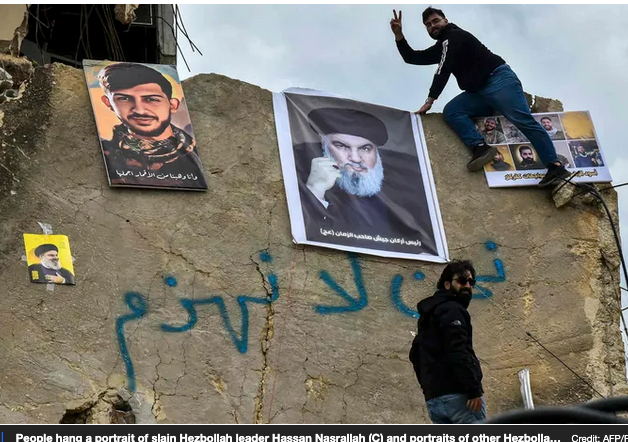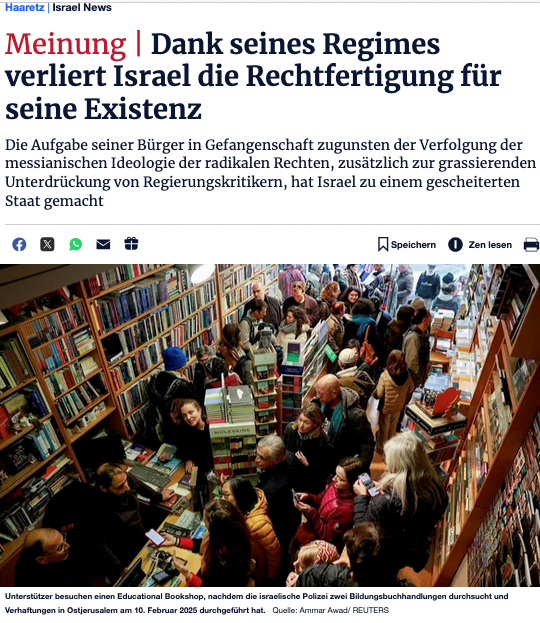


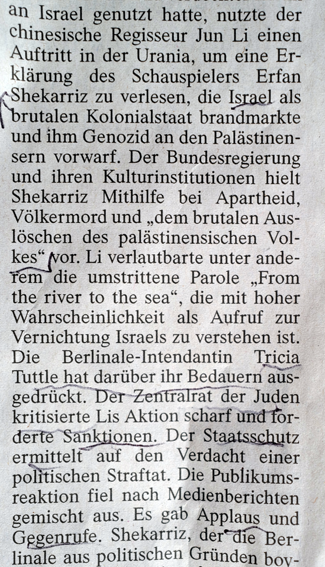
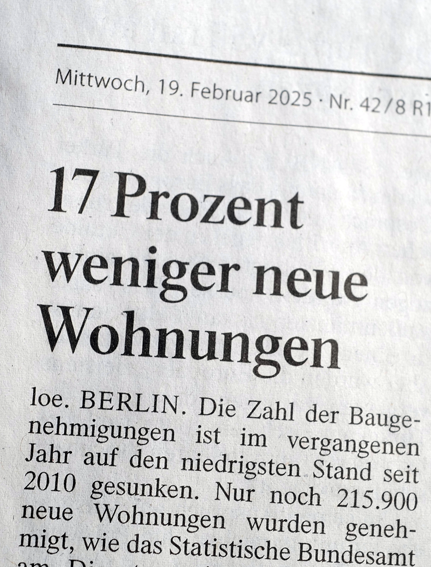

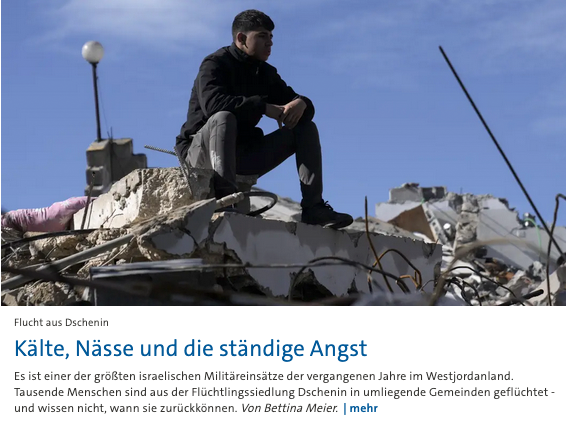




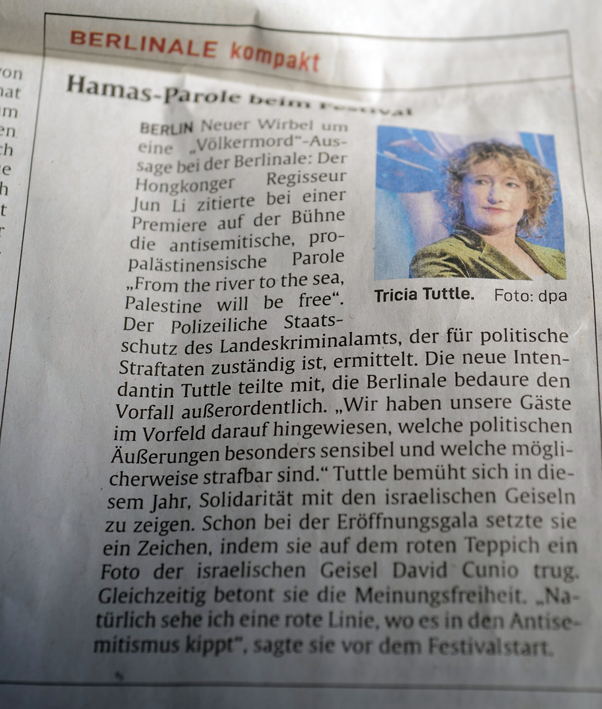





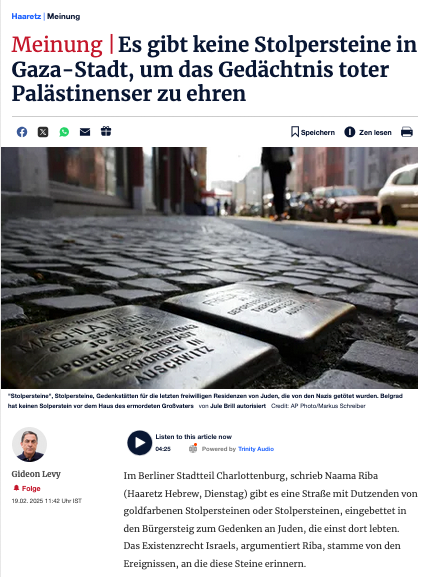


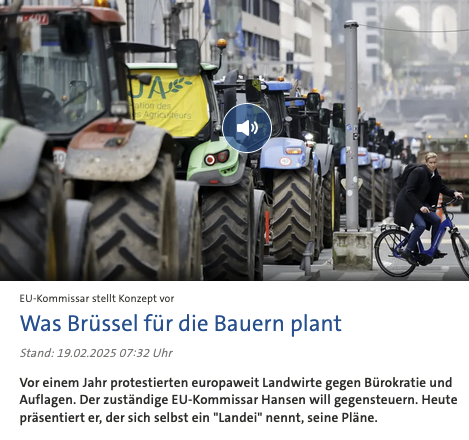

In Berlin's Charlottenburg district, Naama Riba wrote (Haaretz Hebrew, Tuesday), there is a street with dozens of gold-toned stolpersteine, or stumbling blocks, embedded in the sidewalk in memory of Jews who once lived there. Israel's right to exist, Riba argued, stems from the events these stones commemorate.
In contrast, in Gaza City's Rimal neighborhood, no sidewalks remain – only complete devastation. The city's Al-Shifa Hospital has also been destroyed, along with apartment buildings, schools and hotels. There are no golden stolpersteine in Rimal to honor the memory of hundreds of its Palestinian residents killed in the war. If such stones existed, they might serve as a testament to the Palestinian people's struggle for a state that would protect them.
But Riba is blind to the ruins of Rimal and Gaza. She sees only the way Palestinians treat LGBTQ+ people. In her op-ed, she criticizes three Haaretz writers: Hanin Majadli, Michael Sfard and me, for questioning the legitimacy of Israel's existence, a state whose justification – she argues – lies in the stones of Giesebrechtstrasse.
I've never questioned Israel's right to exist. What I do question, however, is its right to act as it does and to commit the atrocities that it commits. It's Israel's actions that call its legitimacy into question.
For a century, Palestinians have endured relentless persecution, dispossession, killing and destruction. No murder – not even that of Riba's great-grandfather, killed by Arabs on his way to a synagogue in Haifa – can justify this.
Riba asks whether immigration to Israel justified the killing of those who migrated there. My parents, too, immigrated to Israel – not by choice, but to escape the war. My mother came alone, as a teenager, with the Youth Aliyah organization; my father spent six months at sea on an illegal-immigration ship.
Nothing could have justified their murder. However, from the very beginning, Zionism chose a path of occupying land already inhabited by another people. That choice justified violent resistance from those who viewed this as an invasion of their homeland.
Neither the divine promise nor the Holocaust is a strong enough argument for people who have lived here for centuries to relinquish their land. If waves of refugees fleeing genocide in Africa were arriving here now, would Israelis give up their land? This is how Palestinians see it, and with good reason.
The fact that Jews mumbled about Jerusalem for generations without attempting to settle the land in large numbers wasn't enough for the Palestinians living there to give it up. The goal of Zionism was never to live alongside them, but to dispossess them. From the so-called conquest of labor to the Judaization of the Galilee, the settlement enterprise in the West Bank and Israel's enthusiasm for the idea of a population transfer from Gaza, it all points to the same conclusion: Zionism's aim was and is dispossession, not coexistence.
Riba and her ilk, Israel's enlightened liberals, advocate what they call "separation." We're here, and also there, and the Palestinians are somewhere, it's not exactly clear where. What will remain of their land? When has Israel offered them a fair share, equal to the vast portion Zionism took by force? And, of course, there's the racism and condescension that come with it: Integrating Palestinians and Jews in one democratic state will drag the noble Israelis down. Primitive Mohammed will drag down the noble Itamar Ben-Gvir. These savages will destroy our "villa in the jungle."
Palestinians, you didn't behave nicely, as Riba expected. "The Palestinian population hasn't done much to develop itself as a nation," she wrote. That's totally unacceptable, so you deserve nothing. Behave nicely, and maybe we'll throw you a bone: a little Bantustan between the West Bank settlements of Itamar and Yitzhar. A demilitarized Bantustan, of course, as only Jews are permitted to defend themselves.
Remember the golden stones in Charlottenburg. Because of them, everything is permitted to us – absolutely anything – including ethnic cleansing, which Riba, of course, places in quotation marks, and even genocide. After all, her great-grandfather was murdered.

Im Berliner Stadtteil Charlottenburg, schrieb Naama Riba (Haaretz Hebrew, Dienstag) gibt es eine Straße mit Dutzenden von goldfarbenen Stolpersteinen oder Stolpersteinen, eingebettet in den Bürgersteig zum Gedenken an Juden, die einst dort lebten. Das Existenzrecht Israels, argumentiert Riba, stamme von den Ereignissen, an die diese Steine erinnern.
Im Gegensatz dazu gibt es im Viertel Rimal in Gaza-Stadt keine Gehwege mehr – nur völlige Verwüstung. Das Al-Shifa-Krankenhaus der Stadt wurde ebenfalls zerstört, zusammen mit Mehrfamilienhäusern, Schulen und Hotels. Es gibt keine goldenen Stolpersteine in Rimal, um das Andenken an Hunderte seiner palästinensischen Bewohner zu ehren, die im Krieg getötet wurden. Wenn es solche Steine gäbe, könnten sie als Beweis für den Kampf des palästinensischen Volkes für einen Staat dienen, der sie schützen würde.
Aber Riba ist blind für die Ruinen von Rimal und Gaza. Sie sieht nur die Art und Weise, wie Palästinenser LGBTQ+-Menschen behandeln. In ihrem Kommentar kritisiert sie drei Haaretz-Autoren: Hanin Majadli, Michael Sfard und ich, weil sie die Legitimität der Existenz Israels in Frage stellen, ein Staat, dessen Rechtfertigung – sie argumentiert – in den Steinen der Giesebrechtstraße liegt.
Ich habe Israels Existenzrecht nie in Frage gestellt. Was ich jedoch in Frage stelle, ist ihr Recht, so zu handeln und die Gräueltaten zu begehen, die sie begeht. Es sind Israels Handlungen, die seine Legitimität in Frage stellen.
Marco Contiero, Direktor für EU-Agrarpolitik bei Greenpeace, warnte, die „Vision“ der EU-Kommission scheine nicht zu erkennen, dass sich das Landwirtschaftssystem grundlegend wandeln müsse. Die EU-Agrarpolitik zahle „enorme Summen öffentlicher Gelder in ein Modell, das die Natur zerstört, milliardenschwere Landbesitzer belohnt, kleine Bauernhöfe in den Ruin treibt und ländliche Gemeinden aushöhlt“, kritisierte Contiero den „Tunnelblick der Kommission“.
Er war Teil der Beratergruppe, die der Kommission Empfehlungen mit auf den Weg gab. Die Ankündigungen hätten aber „wenig Ähnlichkeit“ mit den erarbeiteten Ergebnissen, so Contiero. Sie gingen nicht „auf die dreifache Krise aus Klimaschäden, Naturzerstörung und Umweltverschmutzung ein“, hieß es.
Laut dem Pestizid-Aktions-Netzwerk (PAN) Europe hatten mehr als 90 Organisationen die Kommission im Vorfeld erneut aufgefordert, den Ausstieg aus schädlichen Pestiziden in den Mittelpunkt zu stellen. „Mit dieser Vision ignoriert die Kommission auch die wiederholten Forderungen der Bürger nach einer raschen Reduzierung des Pestizideinsatzes“, hieß es in einer Aussendung.
Kritik kam auch von Arche Noah: „Es reicht nicht, sich allein darauf zu konzentrieren, mehr zu produzieren. Wir brauchen vielfältige, nahrhafte Lebensmittel, die langfristig die Gesundheit der europäischen Bevölkerung fördern“, so Magdalena Prieler von der NGO, die sich für Kulturpflanzenvielfalt einsetzt.



